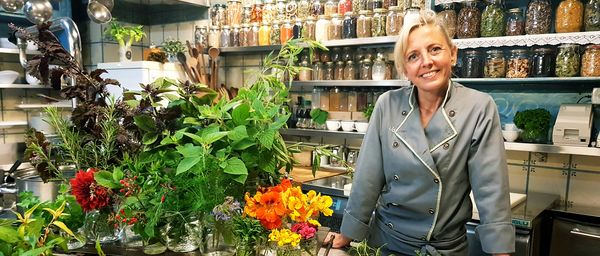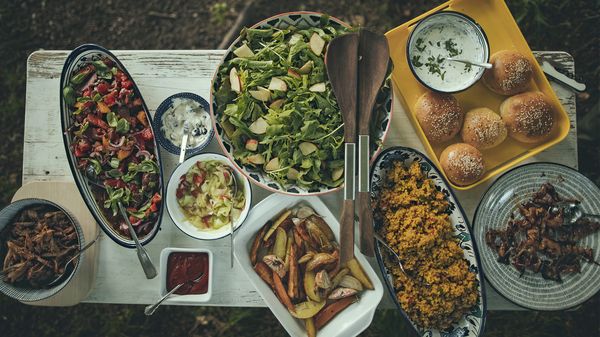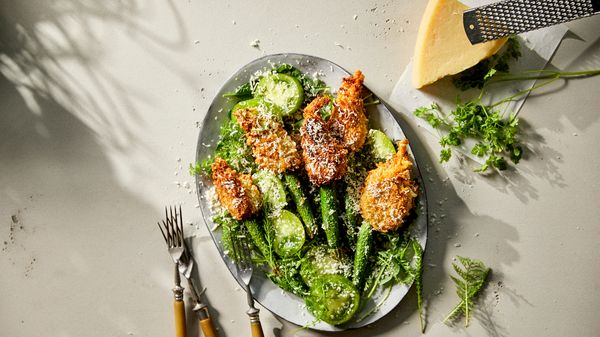Janett Platino, a chef from South Tyrol, spent her childhood surrounded by kitchen utensils and the herbs in the garden behind her parent’s restaurant. The experience shaped her. Today, flowers and vegetable varieties grow there alongside the herbs, from which she extracts flavours ranging from bitter and tart to sweet. She uses them to transform both traditional and newly created dishes into a unique taste experience – and that in turn is the spice of life for the chef.
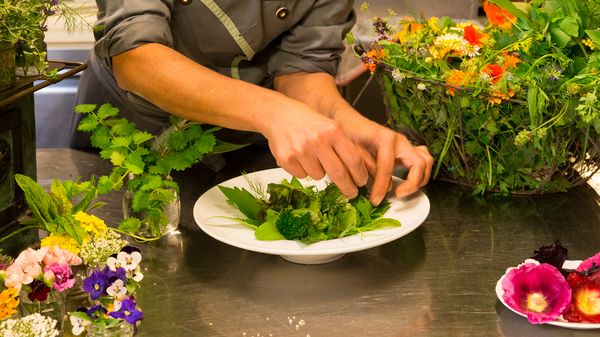
Herbs are the essence of your dishes? What fascinates you about them?
It is the eternal search for that new, unique flavour. I try to put herbs and spices together and mix them in new ways. I cannot do anything without herbs. At my grandmother’s house I even had my own little garden in which I planted and harvested radishes, along with salad leaves and herbs. My grandmother knew all the active ingredients in herbs. She washed my hair with nettles, for example, to make it stronger.
How much do we know about the power of herbs nowadays?
A great deal of knowledge has been lost over the course of the years, but there is currently something of a renaissance. What is mainly lacking these days is not the knowledge of the different herbs and vegetable varieties, but the time to devote to them. People used to plant their own medicinal herbs because they couldn’t just quickly pay a visit to the doctor. And they also couldn’t go to the market every day to buy them. So vegetables were eaten based on the season. The first green plant to sprout in spring was the dandelion. It contains lots of bitter substances and is very healthy – that is how people looked after themselves.
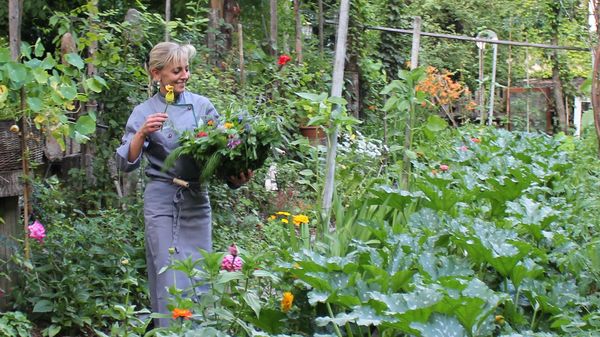
What do you associate with the work in your garden?
You have to plant and cultivate the exclusive herbs yourself – I’m talking about wild herbs like garlic mustard, burnet, wood sorrel and hop shoots. For me, the herbs and my garden are the perfect counterbalance to my work. When I go into the garden and see all the many different plants around me, I can switch off and unwind. Others do yoga, I go into my herb garden. Seeing the plants as they grow evokes deep feelings within me. It is the same when I am cooking.
Where does your wide range of flavour variations originate?
I learned a great deal from old cookery books and drew a lot of inspiration from them. And of course I try out lots of things. In my treasure chamber – also known as the herb shelf – I have over 350 different types of herbs, spices and flowers. I store them in desiccated or dried form in many different jars. They are harvested all year round. In spring with the wild herbs and now, in late summer, the three dehydrators are working around the clock to preserve the herbs for the winter.
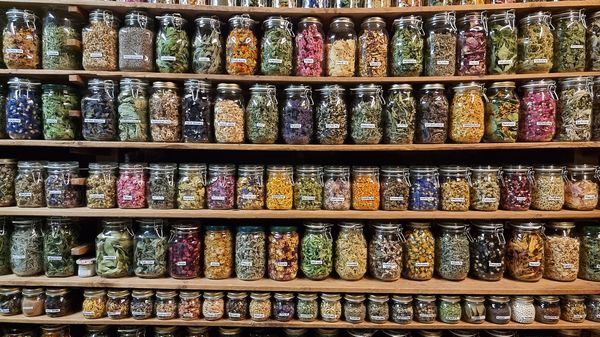
Why of all things is an old cookery book from the year 1685 your source of inspiration?
My ‘wonder book’, to give it its real name, is a cookery book with hundreds of pages and my personal treasure trove for long-forgotten recipes. It is truly incredible to read people’s depth of knowledge of the different effects and varieties of herbs and edible plants. They were clearly already using ginger back then, which must have been imported from Asia. Yet the book also mentions escargots, which used to be food for paupers, mainly during Lent. People simply gathered the snails at the side of the road before cooking, seasoning and eating them. The snails are the stars on the menu in our restaurant these days and we even have our own snail farm.
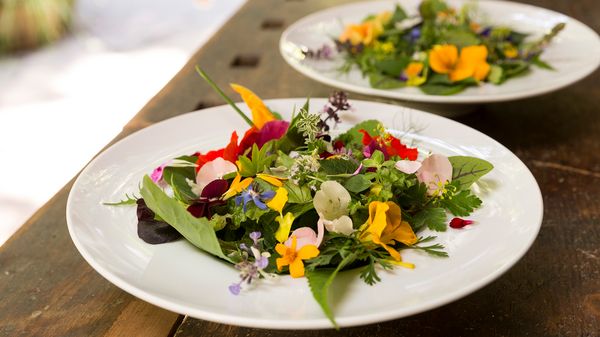
What is more important to you: preparing the food or savouring it?
For me, eating is one of the most important things in life and events of the day. All too often, people eat in an unsophisticated and careless manner in front of the television. They don’t take the necessary time and the family no longer gets together. It doesn’t always have to be something special, not always a fillet steak. It is often the simple dishes that take a long time. Everybody likes to eat tasty food, but the necessary preparation work is often neglected. I really appreciate the origin of food and the way in which it is prepared. For me, however, the act of enjoying the meal together also plays a major role. And I am delighted that my daughter has also discovered this passion for herself and is continuing our family tradition at our Onkel Taa restaurant. Today, we three women from three generations run the restaurant and I can proudly say that my daughter is my right hand in the kitchen.
You are travelling to an island and are only allowed to take five herbs with you. What would they be?
Two of my favourite herbs are summer savory and coriander. Chives always have to be there. Then it gets more difficult, but I would also take pineapple sage with me. And there is no way I could live without lovage. There are some fantastic stories about lovage: the boys used to stuff lovage into their lederhosen because they thought the girls went mad for the smell. Or they used the hollow stalk as a straw in the belief that every girl would drool over them.
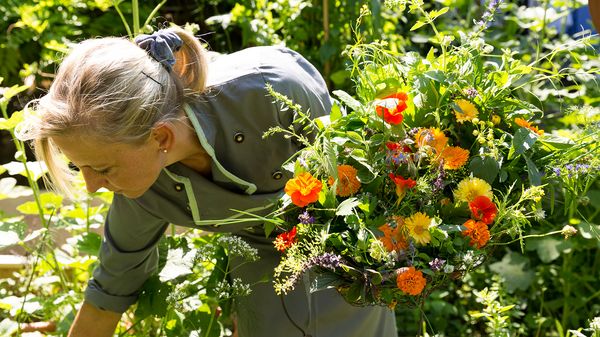
Which herbs should be used rather sparingly?
Mugwort, southernwood and wormwood are very intensive herbs that I only use when preparing fatty dishes. People used to cook more fatty food because they also needed more calories. These herbs were more common back then, but they must be used in a more subtle manner these days.
